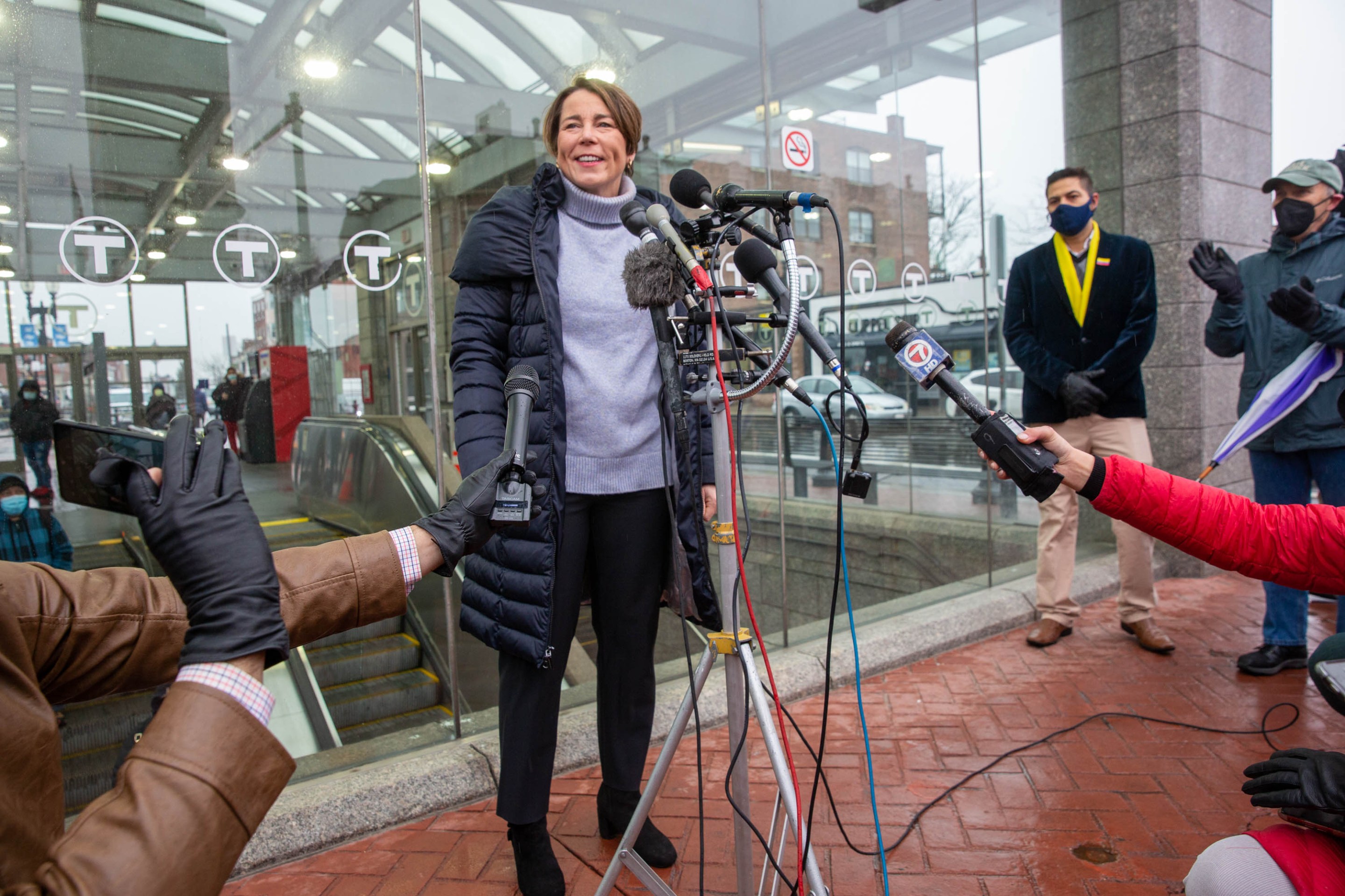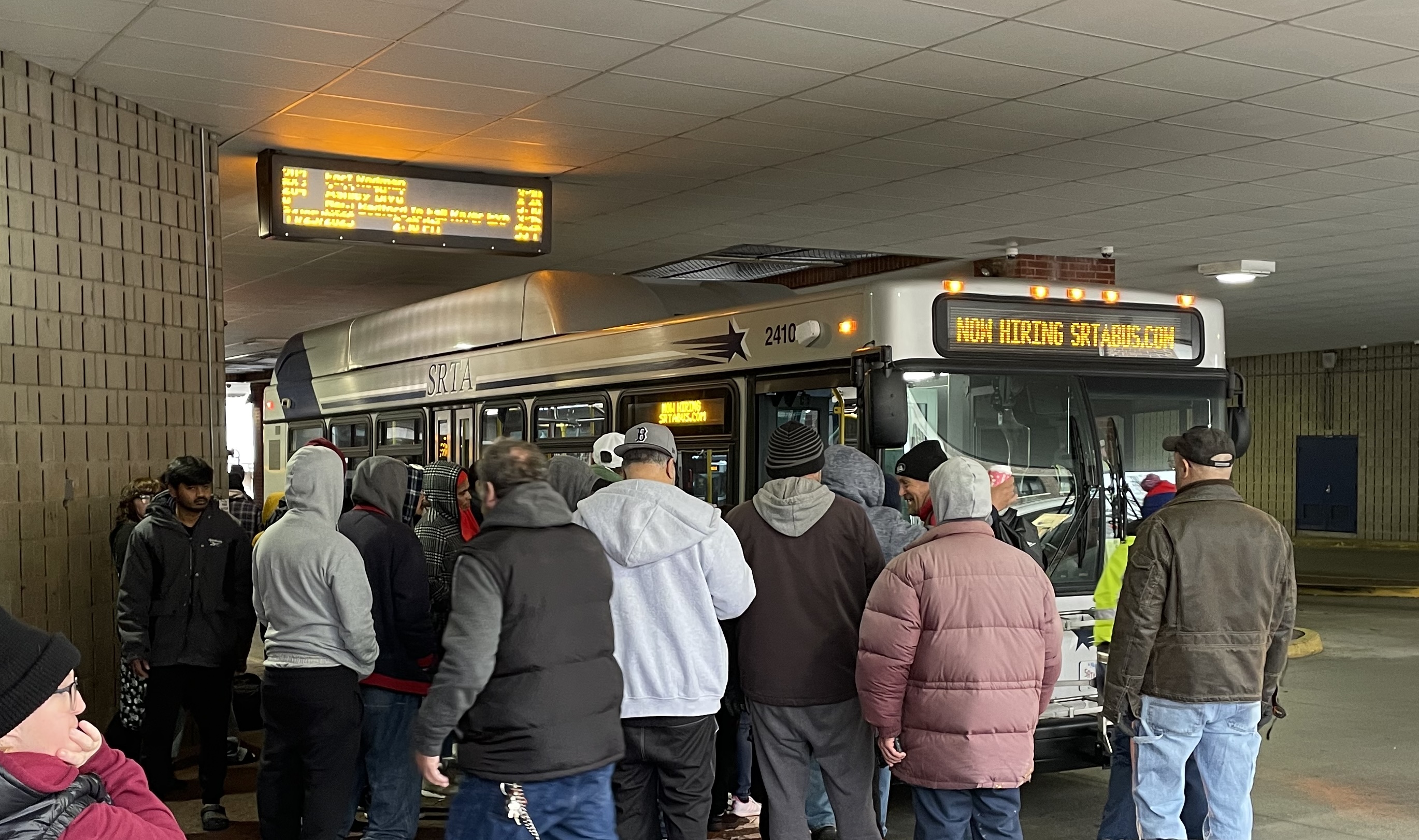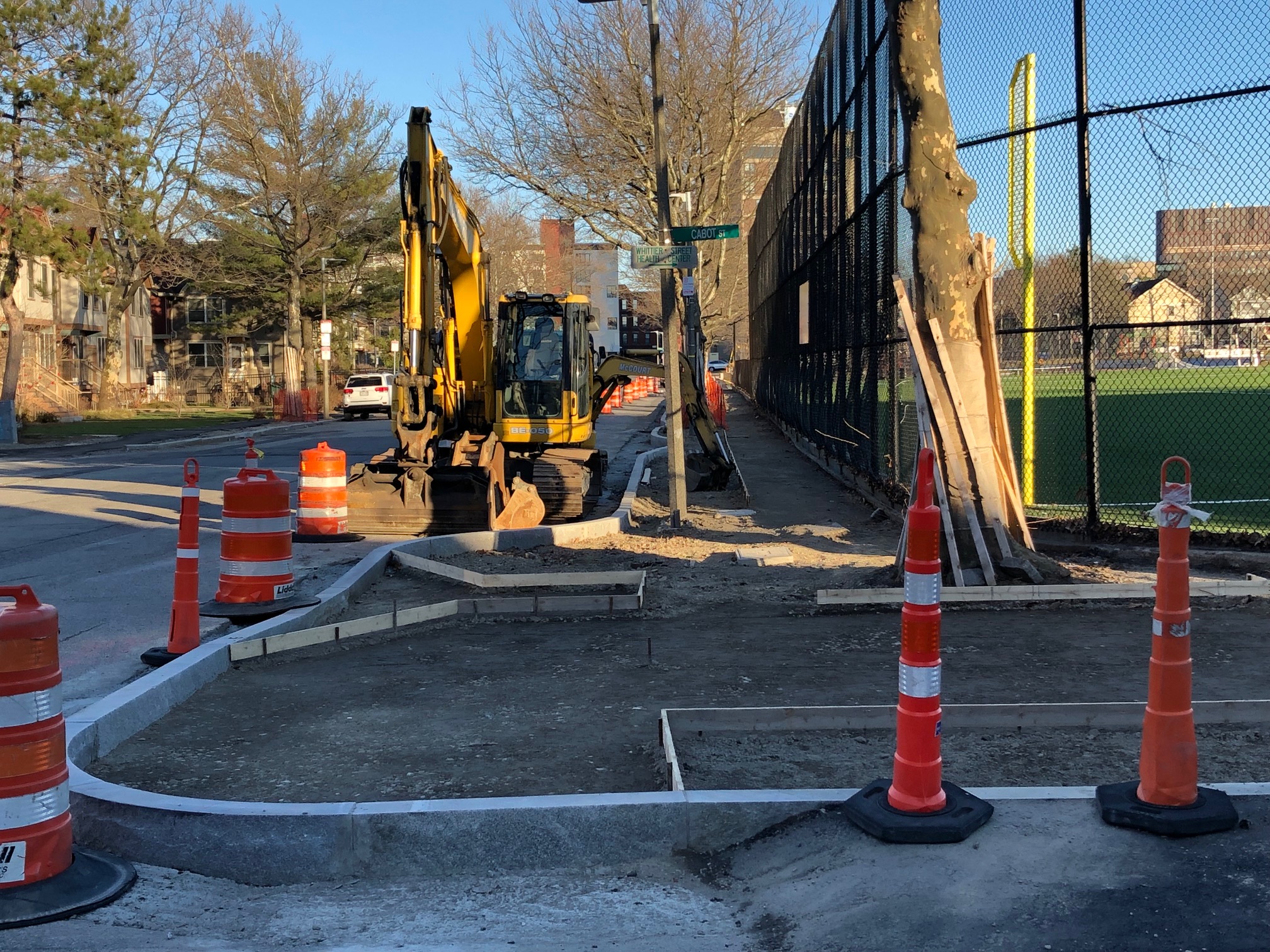Massachusetts’ new governor, Maura Healey, gave an impassioned speech at her inauguration ceremony in the State House where she shared her family’s deep history in the commonwealth going back generations when her ancestors landed on a river bank in Newbury.
“This is our common wealth, in the truest sense — equally ours, equally yours, whether your Massachusetts story began in an older time or in our own time,” she said to the crowd.
Healey boasted of the many reasons that newcomers flock to Massachusetts: a call to higher learning, research, innovation, culture and charity, and an everlasting commitment to equality.
“They see people reaching for something better, something more,” she said.
On the other hand, Healey also acknowledged that once here, residents are coming up against many barriers across a number of fronts.
“We have untold wealth in Massachusetts. But record public revenue does little good when families can’t pay the rent, or buy a house, or heat their homes, or hire child care,” said Healey.
In her speech, the new governor referenced the state’s high rental costs – 50 percent above the national average – and low homeownership rates.
“If we want Massachusetts to be a home for all, we need to build more places to live, and we need to make sure those homes are within reach,” said Healey.
I'm honored to serve as the next Governor of our Commonwealth. Thank you for placing your trust in me, and thank you for believing in Massachusetts.
— Maura Healey (@maura_healey) January 5, 2023
Let's get to work. pic.twitter.com/lfktU2slQj
In her first 100 days, Healey committed to create a Secretary of Housing and proposed building more housing next to transit hubs and reviewing existing zoning practices.
A new zoning law that will require towns to legalize multi-family housing in 175 MBTA-served communities in the eastern part of the state will take effect during Healey’s administration.
Housing and transportation are two sides of the same coin; neighborhoods with higher housing density have the potential to support more public transportation options and reduce the need to own a car.
Narrowing in on the state’s biggest transportation agency, the new governor said she will also appoint an MBTA general manager with deep experience and “a laser focus on making our transit safe and reliable.”
Healey committed to appointing a Safety Chief to inspect the MBTA system in its entirety, “top to bottom and track by track,” she said, adding that “we can’t have a functioning economy without a functioning T.”
Steve Poftak, who ran the transit agency since 2019, announced his resignation late last November, shortly after a hearing led by Senators Elizabeth Warren and Ed Markey where Poftak’s ability to run the agency effectively and safely was put into question.
During the last year of former Governor Charlie Baker’s administration, the T cut weekday subway service, closed sections of subway lines for weeks and the entirety of the Orange Line for a month, yet still failed to deliver on the promised service improvements, with poor service frequency even weeks after the shutdown.
Currently, the MBTA is working through a list of punch items issued last summer by the Federal Transit Administration after a thorough safety management inspection that revealed serious safety risks and inadequate staffing under Governor Baker’s oversight.
Healey also promised to go on a hiring spree to fill other crucial safety positions and other job vacancies at the T.
"My first budget will include funding to hire 1000 additional workers focused on the operation of the MBTA within the first year of our administration," said the Governor.
Under a 2016 labor deal brokered by the Baker administration, the T reduced entry-level wages for bus operators, which has become a major liability in its efforts to address its staffing shortage.
The agency’s Bus Network Redesign would necessitate 440 more additional operators, to meet the promised increases in bus service. This would be in addition to its current deficit of 312 drivers, as of last October.
On climate change action, a top priority for Healey, she has appointed Melissa Hoffer, an Environmental Protection Agency lawyer, as the country’s first cabinet-level climate chief in state government.
The transportation sector is the biggest contributor to greenhouse gas emissions in the state.
Healey says that Hoffer will work across government agencies and with cities and towns to “meet our climate goals and achieve our economic potential.”
In her speech, Healey committed to electrifying the state’s public fleet and adding a million electric vehicles on the road by 2030.
“Let’s commit to making climate innovation our next big investment, our next first, our next frontier,” said Healey.






